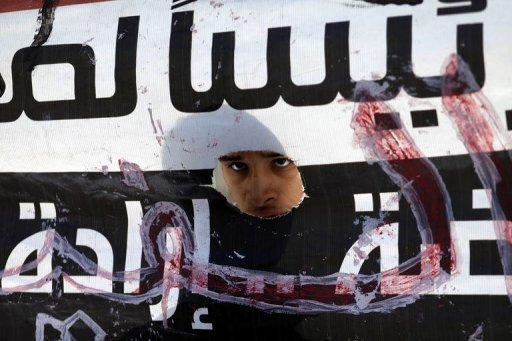CAIRO: After two days of debating the articulation of constitutional amendments, the Shura Council (SC, the Upper House of Parliament) gave them the green lights with four members opposing, and four abstentions, including one by a representative of the ruling National Democratic Party (NDP). On Tuesday, 239 members agreed on the package of 34 amendments. But Nagi El Shihaby (Al Geel Party), Abdul Rahman Khair (Tagamoa Party), independent member Abdel Aziz Shahawi and NDP representative Hanaa Khair El Deen abstained from voting.
Khair El Deen rejected the idea of voting on the amendments as one package. She said she approved of some amendments but objected to others, namely Articles 88 and 79.
“I have to be honest to myself. I’m only with the NDP for a certain time but I [will always be living with myself], she said.
Article 88 pertains to judicial supervision of the elections, which according to the amendments would be limited only to the main polling stations. This article was flagged by the opposition members in the council.
Osama Ghazali Harb, representative of the still-to-be licensed Democratic Front Party, said he understands that total judicial supervision doesn’t exist in other countries. “But the Egyptian situation is different, he explained.
“The long history of election fraud has led voters to mistrust the electoral process. Total judicial supervision would contribute to bringing back this lost trust.
Council President Safwat El Sherif said that complete judicial supervision is unattainable considering the increasing number of electoral committees and the limited number of judges.
NDP representative Ahmed El Deba noted that this type of supervision will delay legal procedures in courts. He explained that 80 percent of court cases in 2005 weren’t concluded because of the judges’ preoccupation with supervising the elections.
“Don’t hold election supervision responsible for the problems of prevailing justice, said Refaat El Saeid, head of the Tagamoa Party. Three days of parliamentary elections and one day of presidential elections aren’t the reason why court cases weren’t resolved, he added.
Harb, Saeid and two Al-Wafd representatives Mohamed Sarhan and Fahmy Nashed voted against the amendments. But the SC had rejected all the suggestions submitted by the opposition.
The council only accepted a suggestion by Farkhanda Hassan, the president of the National Council of Women to amend Article 62 to guarantee a certain quota for women’s representation in municipal councils.
A third of the council’s members are appointed by the president, who selects six representatives from opposition parties.
The opposition described the amendments as a step backward in the road to reform.
Article 79, which would introduce anti-terrorism law as an alternative to emergency law, was also a subject of debate. Council members expressed their concern that the new law would curb general freedoms, especially with the lack of a clear definition of the word “terrorism.
Harb called for the removal of the phrase that prohibits any political activity based in religion. He said it is difficult to define such an activity.
El Geel Party’s El Shihaby said that this phrase, included in Article 5, contradicts Article 2 which stipulates that Sharia is the principal source of legislation. Thus, he added, Islam should be the bedrock of all political party platforms.

